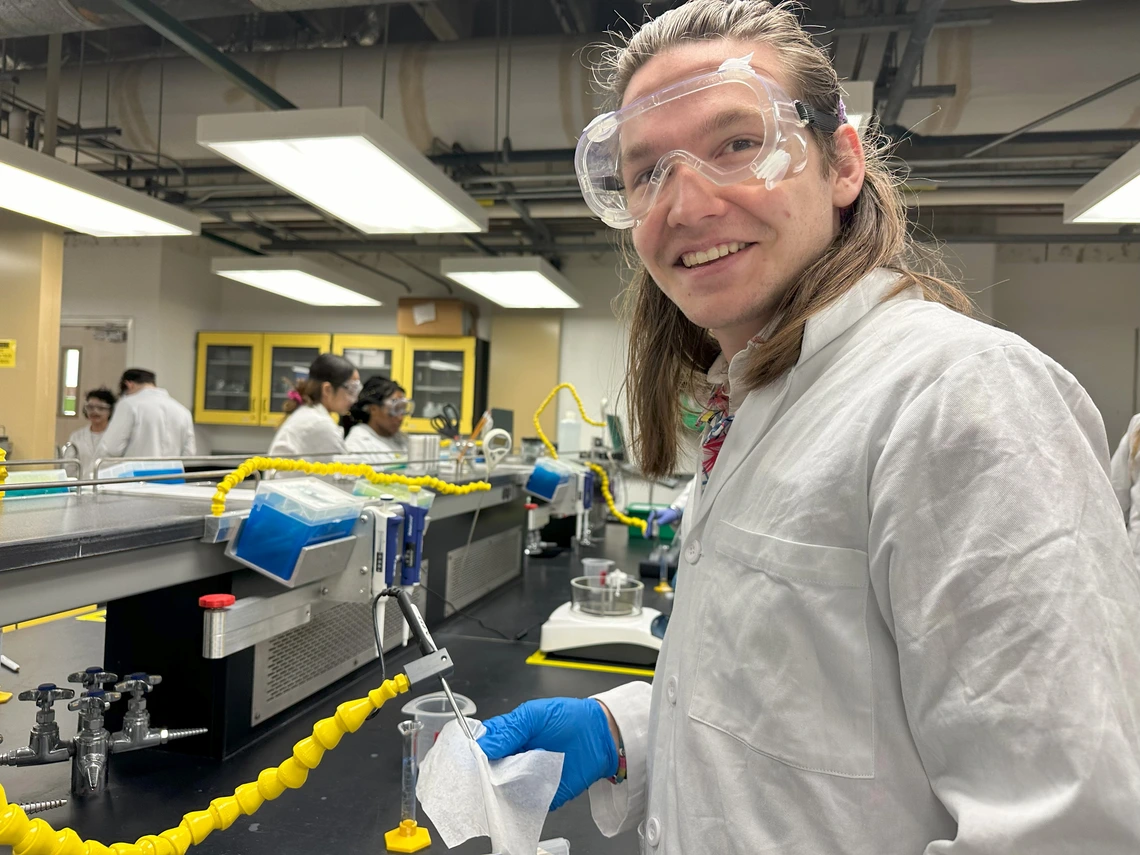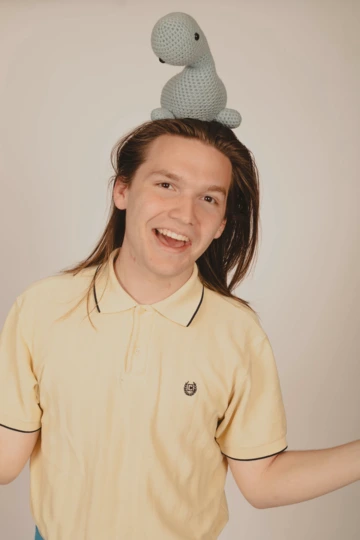Joey Bishop is a sophomore at the University of Arizona studying Optical Sciences & Engineering and Ecology & Evolutionary Biology with a minor in Marine Sciences. In this Q&A, Bishop discusses how he hopes to help people feel empowered to create change by connecting them more deeply with their environments both near and far.
Why did you choose to study optical sciences, ecology and evolutionary biology, and marine sciences?
The fields of study I chose are broad and definitely a mouthful anytime I want to talk about them, but I have a passion for connecting different disciplines of science to make the world better!
More specifically, I'm hoping to connect how light interacts with matter to glean information about the Earth's chemistry to preserve the planet and life on it. We do this kind of science in labs, but we don't apply this kind of chemistry in situ - out in the wild, where the chemistry we want to learn about is happening.
I believe that newer optical tools could allow for precise spectroscopy in places like oil rigs, marine research vessels, and dumps to learn more about our impact on the planet.
What are you interested in doing with your future career?
I would like to pursue a career designing optical devices for ecological research. Marine research is something I find really thrilling, and an area of the world that is in particular danger that I would like to protect in every aspect of my life.
Keeping fossil fuel companies accountable for specific greenhouse gas emissions and understanding where in the ocean gases are exchanged seems like something optical tools would be helpful to report on.
Otherwise, in science, perhaps I would like to use interferometers - a device used to measure the curvature of an object - to measure the curvature of ocean animal eyes. Octopuses, for example, don't have cones in their eyes like we do to detect color from their environment. Instead, they might use muscles to change the curvature of their lens to shine colors in different directions within their eye to interpret them.
How have you been involved in the environment on and/or off campus? What do you enjoy about, or what have you learned from, these experiences?
I am the president of the Ecological Restoration Club here! It's beyond my favorite club on campus because of the people in it and the opportunities it provides.
We are a part of a few grant projects including a Pollinator Equity Project, where we collaborate with Tucson's community gardens to grow pollinator-friendly plants to populate low-income and high-heat areas. Our focus on restoration throughout Tucson gives students who participate a tangible sense of meaning in taking sustainable action.
We host volunteer events and support student projects that involve restorating any ecosystem, no matter how urbanized or desparate. You might have seen one of our pollinator-friendly gardens in the planter next to Bio-Sciences West! That's the kind of important garden plantings we get to be a part of - there are 20+ pollinator gardens planted by this project across campus! I highly encourage coming to one of our events.
Additionally, I'm the outreach coordinator for Marine Awareness and Conservation Society! In MACS, we get to bring preserved specimens and collected samples of organisms from the ocean to the Tucson area, along with focused learning materials to do outreach for marine conservation.
I think it's very valuable to be able to explain all of the important issues our planet is facing because of climate change and discuss the ways we can combat them to people of all ages, no matter where we are. We happen to be in Tucson, a place landlocked and realistically far from the ocean, but we have samples of ocean animals that belong to the shoreline of the Sonoran Desert, which helps people realize that the world we keep hearing we need to protect is right next door.
Why do you think science is relevant in decision making?
To know they are making the best decision, a decision-maker must be informed. This can be a complicated process that can incorporate both the decision-maker's own background knowledge and experience as well as a council of people discussing the likelihood and significance of every possible consequence of an action.
Science is the foundation of action-making, then! Following the scientific process to take innate human curiosity and turn it into feasible knowledge for decision-makers to use and understand and make the world a better place is exactly the reason science exists. No matter how many times you've asked why you're learning something, you are learning it to make the world a better place and to make better-informed decisions.
Why do you think students should care about the environment, even if it isn't their major or area of study?
Whether or not you've enjoyed learning about ecology in school, found a specific calling in some field of science, or if your niche ended up leading you to a career totally outside what we see as the environmental realm: your life is special because it is yours, and the kindness you show to others defines how great it will be. Protecting the lives of others whether they be humans or bats is the ultimate act of kindness and as simple as learning how to reuse plastic shopping bags in your home. Where I advocate for buying organic foods that help pollinators survive harsher winters, you might be able to tell your co-workers that their packaging is actually recyclable and inform them how to drop-off recycle. Learn and always keep learning!


